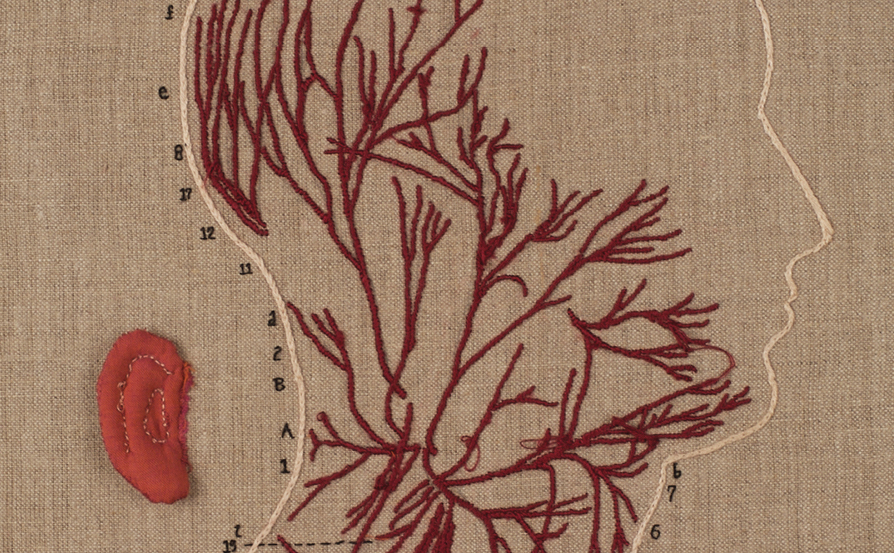A few years ago, the corner of the Internet that I frequent was briefly agog over the syllabus for the one-semester class “Fate and the Individual in European Literature,” which W.H. Auden taught at the University of Michigan from 1941–2. The course fascinated because it included a boggling amount of required reading: all of The Divine Comedy; Othello, Hamlet, and The Tempest; work by Goethe, Kierkegaard, and Baudelaire; The Brothers Karamazov; nine libretti, including The Magic Flute; and so much more. Plus “recommended critical reading,” of course.
I was reminded of Auden’s syllabus while reading Dan Beachy-Quick’s latest book of nonfiction, Of Silence and Song, which was recently published by Milkweed Editions. To wit: on the second page Beachy-Quick’s book, Socrates has arrived; by the third page, un-transliterated Ancient Greek has made what will prove to be the first of many appearances.  Indeed, Of Silence and Song’s notes section contains a who’s-who of Western literature and philosophy: Pound, Eliot, Thoreau, Wittgenstein, Celan, Proust, Homer, Keats, Dickinson, Plutarch, Virgil, Wordsworth, Emerson, Borges, Strabo, Shakespeare, Catullus, Dante. Et cetera, oh my.
Indeed, Of Silence and Song’s notes section contains a who’s-who of Western literature and philosophy: Pound, Eliot, Thoreau, Wittgenstein, Celan, Proust, Homer, Keats, Dickinson, Plutarch, Virgil, Wordsworth, Emerson, Borges, Strabo, Shakespeare, Catullus, Dante. Et cetera, oh my.
Of Silence and Song — a discursive, nonlinear, 300-page-plus meditation on the silence that underpins and surrounds and lies beneath all art and creation and life — is not for the faint of heart, and not simply because of the book’s frequent, often-abrupt references to other works. Of Silence and Song doesn’t just reward close, attentive reading. In fact, it demands it. Of Silence and Song is a highly lyric book, advancing a series of impressions rather than the march of a central, tightly reasoned argument. It has more in common with poetry and the more abstruse philosophers than traditional nonfiction, or for that matter most “literary” essay collections. In return for their efforts, however, readers are rewarded with loveliness after loveliness. Of Silence and Song is a beautiful book about beauty.
Of Silence and Song opens with a scene between Beachy-Quick and his daughter discussing “the songs you don’t know” and finding a dead bird. It ends on a family trip to Mycenae taken because “I wanted to stop thinking,” and ruminations on facts, time, and the nature of existence. In between, Beachy-Quick thinks, lyrically, about everything from Shelley drowning with one of Keats’s poems in his pockets, to mass shootings, to Marcel Duchamp’s Fountain. It is a dizzying, if frequently arresting, book.
Here’s a representative sample:
Heliopause
At the edge of the solar system a spacecraft named New Horizons just woke up. It slept for three billion miles and now it’s opening its eyes to take photos of Pluto.Astronomers are hopeful to find craters, mountains. Any features clearly seen would please, as the best photos we now have show only a blurry rock.
Maybe they’ll find rings, my favorite planetary feature.
Πλουτος means wealth. Rings are a form of wealth, and I like to think of Pluto circled by the very thing that typifies the god for which the planet is named. I like to think the rings might ring and that New Horizons has ears and not just eyes and will send us music back from the very edge, the outermost circle, of our song’s influence.
One way to consider a poem’s relationship to itself: it tries to discover its own limit so that it can fill the shape with song. There are other ways, but I know them less well.
George Oppen: “If there is another horizon, I haven’t seen it.” Maybe I’m misquoting.

There is a distinctly dreamlike quality to Of Silence and Song. The essays/pieces that make up the book are very loosely linked (e.g., the section above ends on the famous Wittgenstein quote, “Whereof one cannot speak, thereof one must be silent” before moving onto a section about Celan that begins with names Celan signed on his work before settling on Celan: “Paul Antschel, Paul Aurel, Paul Ancel, A. Pavel”), and the frequent jumping from referent to referent feels like wandering through a maze, turning frequently. I found that my mind wandered often. But I don’t think that’s a bad thing; Of Silence and Song simply is a book that induces its readers to think, rather than grabbing them by the brain and ordering them to follow.
A few weeks ago, I saw Dara Wier read at Open Books in Seattle, and while introducing one of her poems she said something to the effect of “now this is one of those poems where if you wander off a little that’s okay, because you can just pick right back up in another place and that’s fine,” much to the audience’s recognition and amusement. Of Silence and Song is like that. I read the book from front to back, as one does, but one could easily pick it up and read from nearly anywhere. Which I mean both as a compliment and a criticism: the writing throughout is extraordinarily strong, but the threads that connect the book’s sections can be hard to divine. Likewise, I wasn’t equally interested in every part of the book, but that’s the rub with reference-heavy texts, as leaning on references and quoting text introduces reader subjectivity. I’m not much into Pound, so the parts about his Cantos didn’t do much for me (sorry). However, Duchamp! Lyric musings on The Bride Stripped Bare by Her Bachelors, Even, which lives in the Philadelphia Museum of Art, my hometown’s own museum, and which work I’ve stood in front of for hours, studying the oddity of Duchamp’s composition and symbolism? Hell yes, sign me up. Fly Eagles, fly.
It wouldn’t be fitting for a review of a book so steeped in the art of others, that uses that art of others as its foundation, to quote the book in question at little length, so to end here’s another sample, this from close to the conclusion of Of Silence and Song:
My friend points out that in the edition of Spenser’s complete poems in six volumes, including “A Glossary Explaining the Old and Obscure Words,” whose title page bears Keats’s younger brother George’s signature and the date 1816 — year when John began to write his first poems, and Spenser the first poet he fell in love with — that the archaic type makes the word rest appear as reft.
Rest so often a euphemism for death. Keeping secret what it cannot say.
Reft in Peace is a common epitaph carved into stone that no one ever sees.




